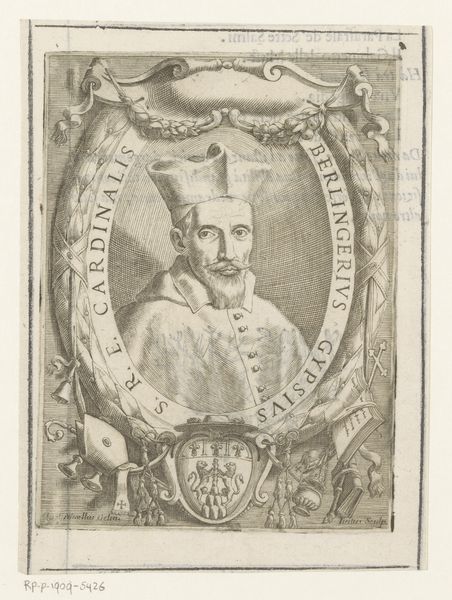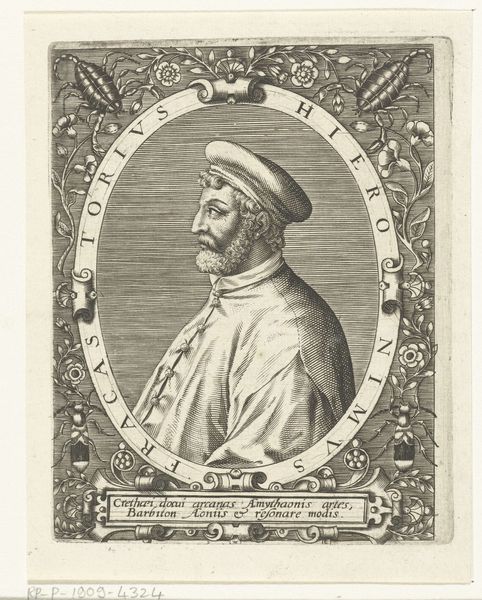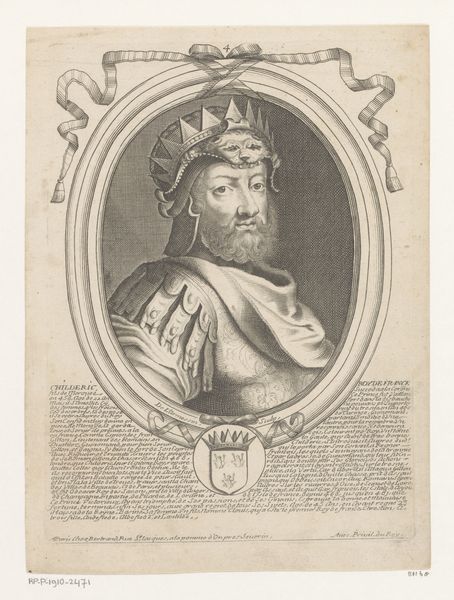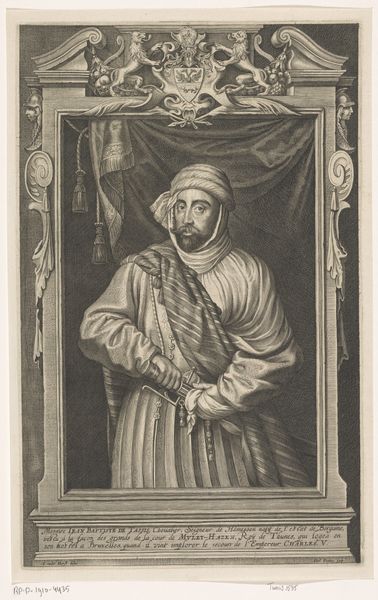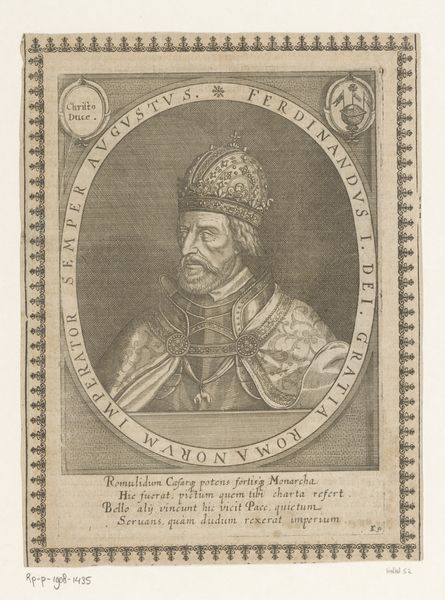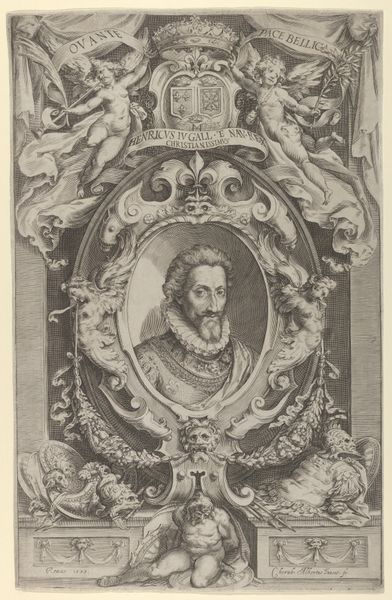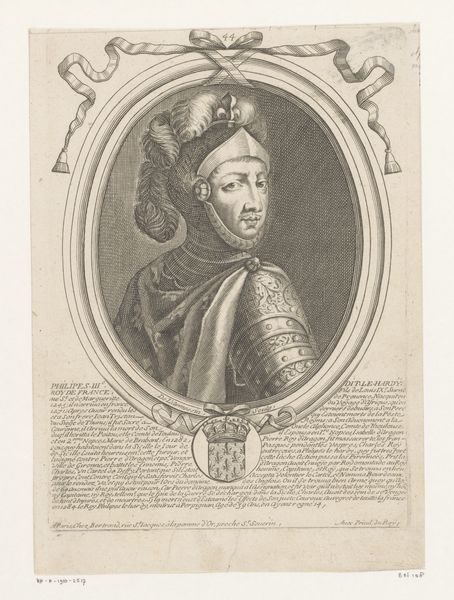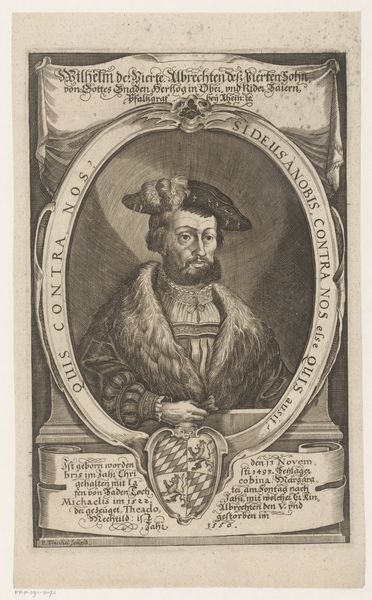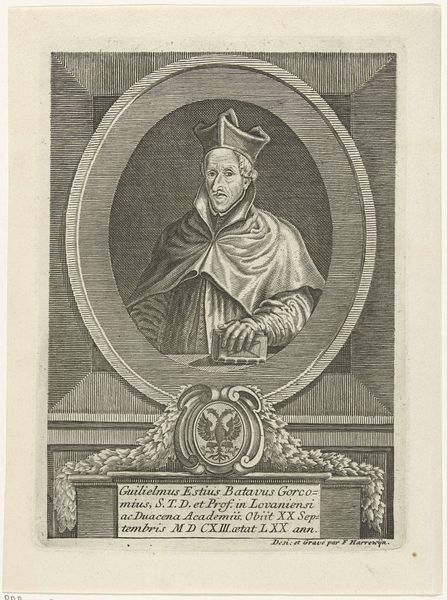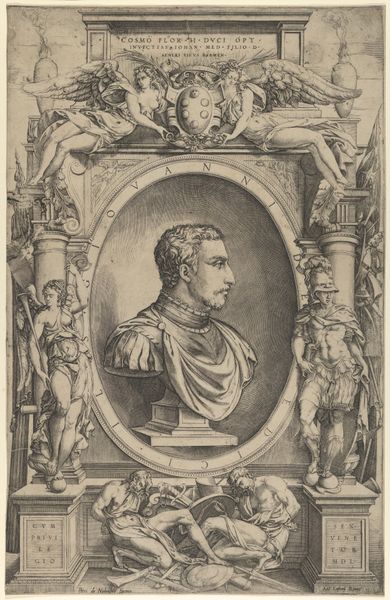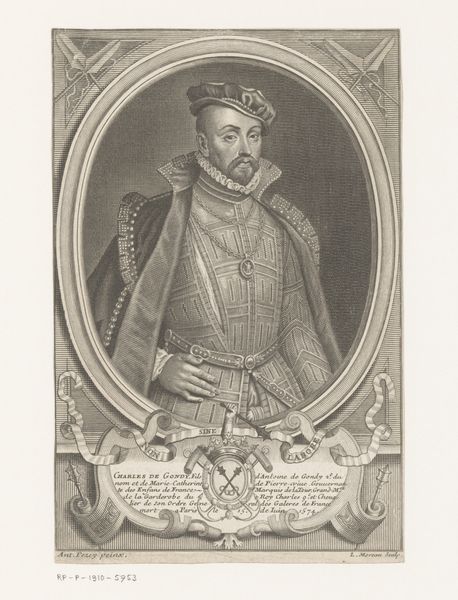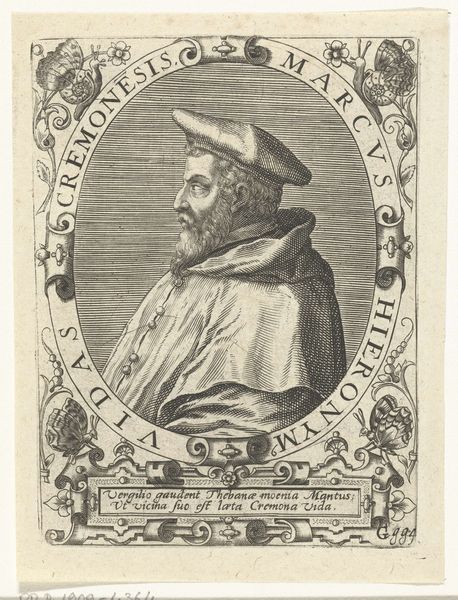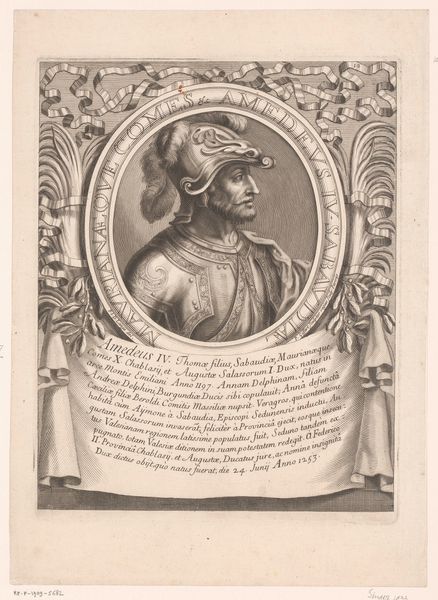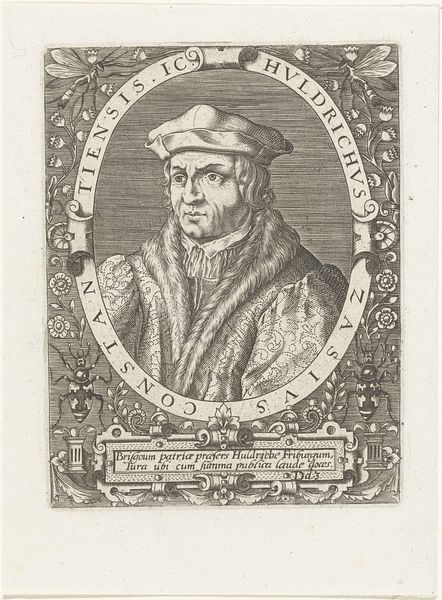
engraving
#
portrait
#
baroque
#
old engraving style
#
portrait reference
#
limited contrast and shading
#
portrait drawing
#
history-painting
#
italian-renaissance
#
engraving
Dimensions: height 291 mm, width 197 mm
Copyright: Rijks Museum: Open Domain
Editor: So, this engraving, "Portret van paus Clemens XI," made in 1709 by Hubert Vincent, is striking. The lines are incredibly detailed, almost photographic in their precision. What stands out most is the framing around the portrait, all those symbols. How do you interpret this work? Curator: This portrait is not just a likeness but a carefully constructed emblem of power and spiritual authority. Note the papal regalia crowning the image - the crossed keys of St. Peter, symbolizing the power to bind and loose on Earth and in Heaven. The oval frame, adorned with foliage, almost feels like a sacred enclosure. These details aren't arbitrary; they speak to the deeply symbolic language of Baroque portraiture. How do you think they shape our perception of Clement XI? Editor: I guess the symbols do add weight to his image. It feels almost like a deliberate attempt to show him not just as a person, but as a living representation of the Church itself. Curator: Precisely! And look at the gaze – direct, but not aggressive. There's a paternal quality intended to inspire trust. Notice also the inscription, essentially praising Clement XI. In an age where the printing press enabled the widespread dissemination of images, engravings like this became vital tools for constructing and controlling a public persona. Editor: It's fascinating how much thought went into creating this image, way beyond just capturing a resemblance. I hadn't considered the inscription as a way to manipulate the public image. Thanks for your insights. Curator: And thank you for prompting this deeper look. Seeing the symbols anew reminds us that every element in a portrait can be a powerful message, carefully curated for posterity.
Comments
No comments
Be the first to comment and join the conversation on the ultimate creative platform.
